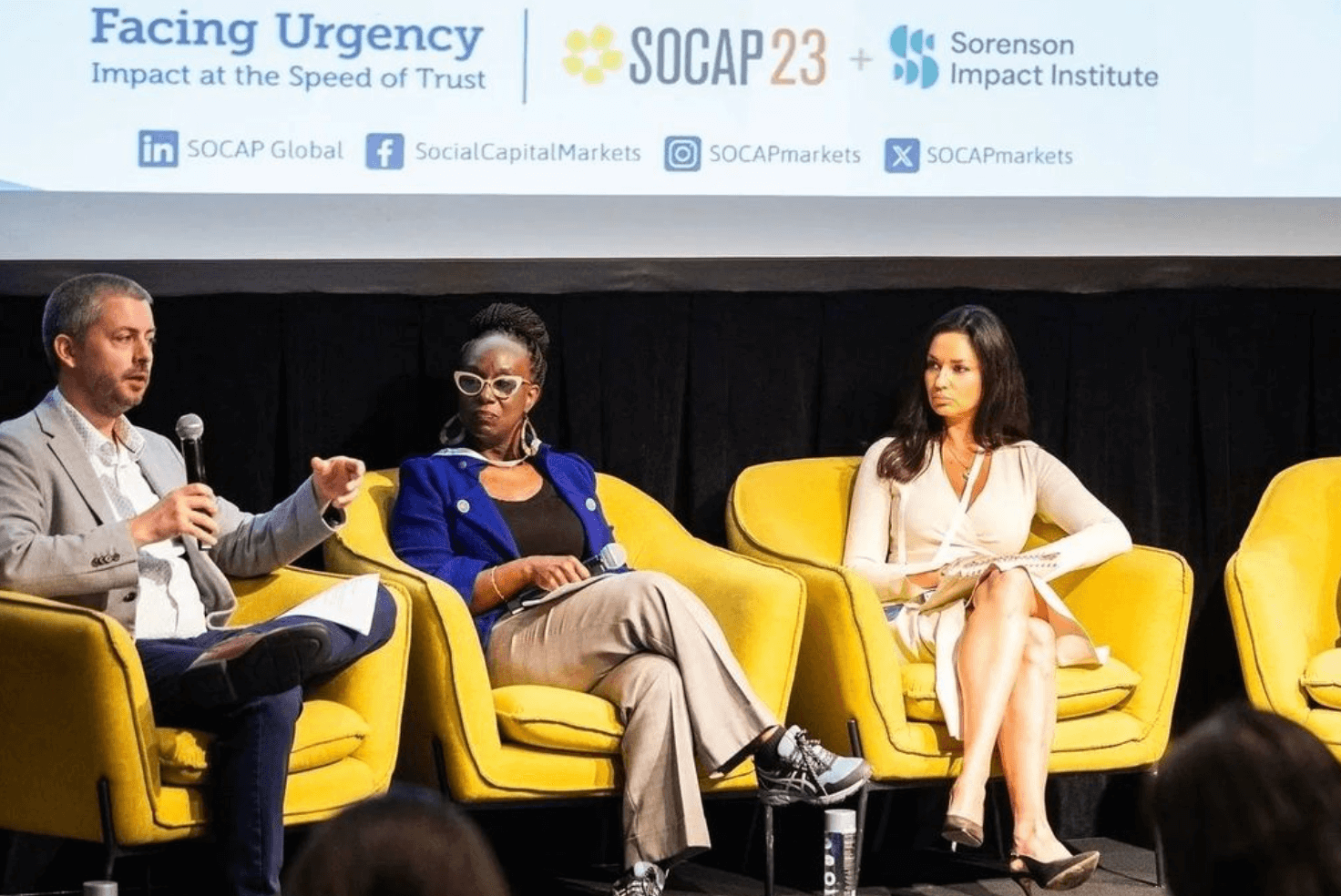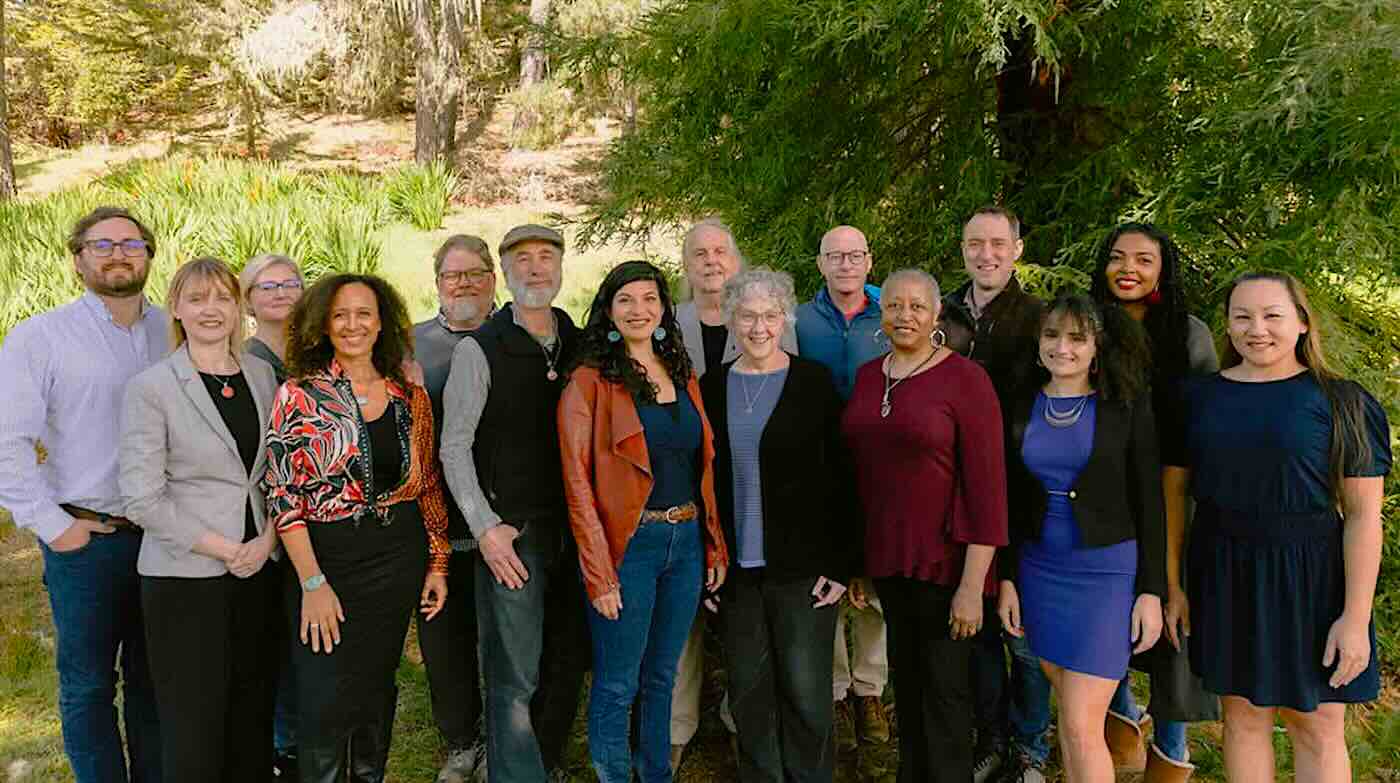ImpactAlpha, May 24 – The Ford Foundation liked the “quality jobs” focus of Two Sigma Impact, the private equity manager that last month raised $677 million to invest in “human capital-centric businesses where employees are critical to the delivery of a service or product.”
Ford has been an advocate for broad-based worker ownership as part of a larger quality-jobs toolkit. At the time of the raise, Two Sigma confirmed to ImpactAlpha that worker ownership is not currently part of the Two Sigma Impact strategy.
“Warren may learn over time that he could actually enhance the firm’s and the fund’s profitability, and the returns generated for limited partners, by including an employee-ownership component,” Ford’s Roy Swan told ImpactAlpha in an interview.
“If limited partners begin to communicate and convey the belief that an employee-ownership element of the investment strategy is important, that can be an influence on general partners’ thinking,” he explained.
Swan manages the $1 billion “mission investments” carveout from Ford’s $16 billion endowment. Quality jobs is one of a handful of key investment areas, along with affordable housing, diverse fund managers, financial inclusion and health tech.
But only one of the four funds in Ford’s quality jobs portfolio, Apis & Heritage Capital Partners, deploys worker ownership as part of their investment strategies.
Washington, D.C.-based Apis & Heritage helps small and mid-sized businesses with large workforces of color transition to employee ownership (see, “Black and brown employee ownership for the post-COVID economy“). Apis & Heritage argues that employee-led buyouts, or ELBOs, boost revenues, retention and employee incomes and are a critical tool in fighting inequality.
“We see employee ownership as a form of stakeholder capitalism that, when properly implemented, helps everyone,” Swan said. “We love ‘everybody wins’ scenarios.” (Disclosure: Ford Foundation has been a sponsor of ImpactAlpha.)
Next big thing
Swan first thought about employee ownership through his father’s experience of labor-management tensions as an assembly line worker at General Motors. “I thought, ‘Wouldn’t it be great if there was some kind of linking of the arms where everyone was on the same page?” He read the philosophy of Louis Kelso, the father of the employee stock ownership plan, and German models of “codetermination.”
“So I’ve been thinking about this, I guess, it’s almost 40 years now,” Swan says. “It’s a very basic concept that has become more important as industrialization and the technology revolution has created wider gaps between capital and labor.”
In the face of wealth inequality, layoffs, offshoring, the decline of labor unions, right to work laws and other erosions of worker power, he said, “worker ownership creates an opportunity for the democratization of capitalism, so that more people can participate in the full benefits of capitalism.”
Ford was one of the first outside contributors to Ownership Works, the nonprofit private-equity industry vehicle launched by KKR’s Pete Stavros (hear Stavros on ImpactAlpha’s podcast, “This private-equity giant has distributed more than $500 million – to hourly employees”). TPG, Apollo and dozens of other private equity investors joined KKR in pledging to give equity shares to employees at some portfolio firms with the goal of creating $20 billion in wealth for low- and moderate-income workers over the next decade. Critics have questioned the extent of employees’ ownership and the size of their stakes.
On a panel yesterday at the New York Federal Reserve Bank, the Global Impact Investing Network’s Jessica Rose called employee ownership “the best kept business model secret of our age and the next big thing for impact investing.”
“We’re hearing about a model that is good for workers, but which also drives firm performance and ultimately, financial return,” she said. “The impact investing industry is beginning to recognize the power of employee ownership to help low and moderate income workers build wealth, and it’s only going to grow from here.”
Productivity driver
Swan himself has been disappointed by the continued pushback against employee ownership.
“There are some investors who believe that if you’re doing something that’s helping workers, it’s not going to deliver attractive returns,” Swan said. “It tells me that people don’t really understand that the primary driver of productivity is the workers, whether that’s the blue collar or whether that’s management.”
Valdmanis, who launched Two Sigma Impact inside the $58 billion Two Sigma hedge fund, evaluates investments with the firm’s own Good Jobs Score methodology, which assigns points across “four key dimensions of a good Job: leadership, purpose, growth and fairness.” But Two Sigma has not embraced employee ownership in its investment approach, Valdmanis told ImpactAlpha in an interview late last year. A spokeswoman confirmed last month, “That won’t be part of the strategy.”
“I just don’t think it’s applicable in every situation, and it certainly doesn’t solve every problem,” Valdmanis said. “There are certainly plenty of companies where either the company is too small, or the turnover of the employee base is too quick, where ultimately the employee is not going to value the equity. The worst thing you could ever do is give someone something that’s costly that they don’t value. There are other ways to use that same money to create better incentives or alignment.”
Ford’s quality jobs portfolio also includes HCAP Partners, based in La Jolla, Calif., which provides mezzanine debt and private equity for medium-sized businesses. HCAP hasn’t financed any employee conversion but the firm looks to implement stock options as part of its “Gainful Jobs” framework, HCAP’s Tom Woelfel said in an email.
Such broad-based participation also includes 401(k) retirement benefits and employee bonuses, “as we think it’s also important that employee wealth creation isn’t only tied to a successful exit,” Woelfel said.
Another Ford quality jobs investee, Bain Capital Double Impact, includes “workforce development” as one of its investment themes but makes no mention of worker ownership.
Lafayette Square, which emphasizes low- to moderate income workers and communities, focuses on employee benefits through its “worker solutions” platform (see, “Lafayette Square is banking on low-income communities and worker solutions”).
“It’s pretty clear that we are advocates of employee ownership,” Swan said. “As we build deeper relationships and continue to have conversations, we find that there are instances where people evolve their thinking.”
More broadly, Swan is promoting a vision of what he calls “patriotic investing.” Business and finance needs to demonstrate that it can drive broad-based prosperity and inclusive growth, he says, “If you really care about this country, if you really care about workers, if you really want to create a more sustainable form of capitalism, if we really want to see capitalism thrive.”
“The American economy is great, but it can be better. And one way to make it better is if everyone has a chance to feel like they’re participants,” he said. “That narrative needs to get out there and we’re going to help do it.”
Roodgally Senatus contributed reporting.











